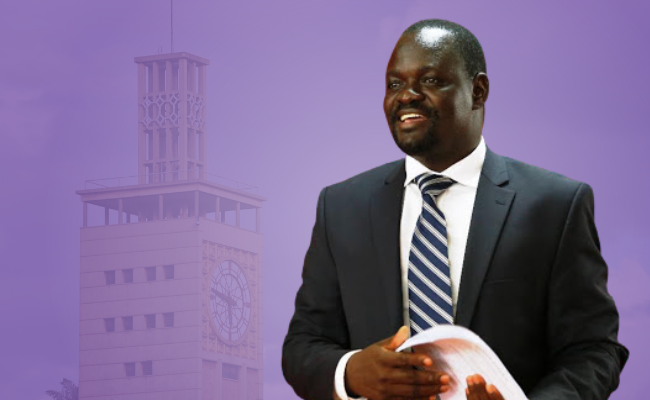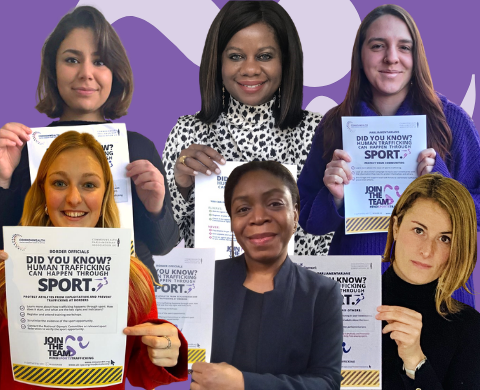Raising the Red Card to Trafficking: Interview with Hon. Jared Okelo MP on Human Trafficking Through Sport in Kenya
Published 20 October 2021

How did you become aware of the issue of trafficking through sport?
Trafficking is interlinked with slavery - and growing up as a kid - you know about slavery and how football can be used as a means to exploit people. Sometimes, people realize that the contract they were given is not what they were expecting. When such issues happen,
they are put on our radar.
Although trafficking is a common term, I have a deep knowledge due to the UK Modern Slavery project with CPA UK in 2018. I come from a region where football is loved and everyone wants to play it, with people playing the sport as young as three years old. Women’s football is also becoming increasingly common, so when we talk about trafficking through sport, we need to think of both genders.
As well as this, constituents have come to my office asking if a particular agent is eligible enough to take their children to Europe. They want me to do a background check. Every organization in Kenya has to be registered. You can therefore find out if it is a legitimate organization or agent. You then have to take a further step and look at their revenue, and their tax regime.
It is very important to carry that out for due diligence. Sometimes they will visit me when it is too late; after they have paid money or
been abandoned. This is when they ask for background information, even if they have already committed to an agent.
I am at an advantage compared to other parliamentarians in Kenya because I have learnt about trafficking. This is how I can communicate well and advise my constituents. I know other MPs will be giving some advice, but it won't be as in-depth.
What do you see as the role of a parliamentarian in tackling trafficking through sport?
As a parliamentarian who has a voice, I have an unlimited platform to raise awareness. This can be done through parliament, putting through motions, petitions, and private member questions.
The media also plays an important role. I do lots of TV and radio interviews on topical issues around trafficking since I was involved with CPA UK. People listen to parliamentarians as we have a large following. I therefore organize rallies and events in my region.
In 2019, just before the coronavirus hit and having benefited from wider knowledge from the CPA, I organized a sporting event in the Western part of Kenya. When you organize a football event, many people will turn up because people love football. We started by having a tournament with different communities.
Before the final game began, I explained and spoke on trafficking through sport, the dangers involved and how they could get lured into such things. This was highly effective.
However, people did become disillusioned. If they are approached by an agent, having a member of parliament tell them it's fake is discouraging and disappointing. It has always been their dream. I know people that have received prior knowledge but would still do it. Some are very proactive, and will come to my office for background checks, but others won’t.
I also sit on the Implementation Committee, where we try and ensure that all the laws are fast tracked and implemented. This gives me an advanced position to look at laws that are friendly to trafficking and to stop them. It will ensure that people who want to take advantage of our children are punished. We have very beautiful laws but some need amendments.
Is the topic of trafficking through sport part of the Kenyan national curriculum in schools?
Children will learn about slavery but only a very shallow historical background. I have not seen our curriculum trying to marry past events to what is happening now.
It would be very important to tweak the curriculum to make it clear about the current forms of Modern Slavery. You have brought up a very solid point, to marry the history with what is happening at the moment. This is a transnational problem that requires many stakeholders.
This interview appeared in the the October Issue of the CPA UK Modern Slavery and Human Trafficking Newsletter. View the newsletter here.





